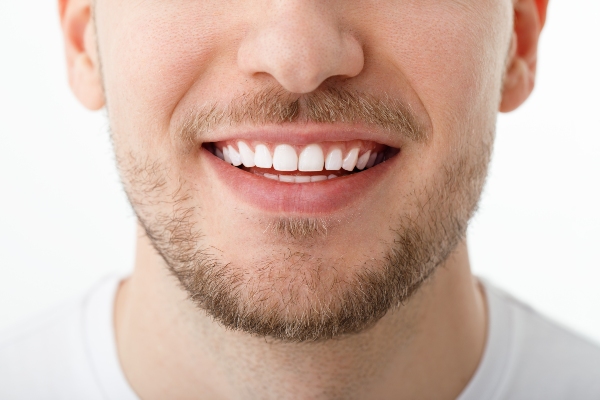 Dental veneers help patients achieve a picture-perfect smile. However, these wafer-thin shells go over the natural teeth, which begs the question: Are dental veneers comfortable? When installed correctly, veneers feel just like your real teeth. In this article, we will explore veneers, how they work, and how they manage to feel and look natural.
Dental veneers help patients achieve a picture-perfect smile. However, these wafer-thin shells go over the natural teeth, which begs the question: Are dental veneers comfortable? When installed correctly, veneers feel just like your real teeth. In this article, we will explore veneers, how they work, and how they manage to feel and look natural.
What are dental veneers?
Veneers help fix cosmetic imperfections on the teeth, such as discoloration, minor chips, and short teeth. For this reason, the dentist typically uses veneers to repair the top front teeth. Patients can get a single veneer or veneers for multiple teeth.
The two types of traditional veneers include porcelain and composite resin. To install traditional veneers, the dentist must grind down the teeth. Since they will remove the first and second layers of the teeth (enamel and dentin, respectively), the procedure is irreversible and permanent. However, the veneers only need to be replaced every 10 to 20 years.
There are also porcelain veneers that require minimal preparation. These no-prep veneers only require some of the tooth enamel to be removed. This makes the application process faster than that of traditional veneers. What is more, dentists typically do not need to use a local anesthetic to apply no-prep veneers.
Veneers are attached to the teeth
Applying traditional dental veneers requires two appointments. In the first appointment, the dentist will grind down the problem teeth and take an impression of them. This impression will ensure the veneers are the correct size for the patient in a lab off-site. This may take up to two weeks. In the meantime, the dentist will fit temporary veneers onto the affected teeth. The dentist will cement the permanent veneers during the second appointment.
Veneers feel like real teeth
Dental veneers ultimately look and feel like natural teeth. This is because the natural teeth have been ground down, and the veneers are cemented on the surface. Veneers also function just like real teeth. Additionally, patients report feeling no difference when eating or talking, although they tend to report increased confidence when smiling.
Taking care of veneers
Taking care of dental veneers is much like taking care of regular teeth. The only difference is that veneers must be replaced every 10 to 20 years. Otherwise, good dental hygiene should suffice. Brush the veneers twice a day, just like natural teeth; use fluoridated toothpaste for best results. Flossing and rinsing with mouthwash daily is also recommended to maintain oral health. As is necessary for natural teeth, visit the dentist every six months for a veneer checkup. The dentist can complete this checkup as part of the patient’s routine teeth cleaning.
Veneers may need to be replaced early if they become cracked, chipped, or stained. Wear a mouthguard while playing sports to prevent chipping and cracking. Nightguards can help protect veneers for those who grind their teeth while sleeping. To prevent staining, drink coffee, tea, and red wine only in moderation — or brush the veneers immediately following consumption.
Improve your smile with dental veneers
Fix imperfections without compromising comfort. Dental veneers can restore your teeth and leave you with a confident smile. To learn more, call our team today.
Request an appointment or call R. David Brumbaugh, DDS at 214-306-4402 for an appointment in our Dallas office.
Related Posts
Dental veneers may be the most effective option to repair uneven, misshapen, or broken teeth. They can also help reduce gaps in the teeth. Traditional veneers come in two main types: porcelain and composite resin. While both can help you achieve that movie-star smile, they have some differences. This article will explore both porcelain and…
Getting dental veneers can improve your smile. These thin shells can also protect the treated teeth. Your dentist can determine if you can have this treatment. Here are the details to see if you are a candidate for dental veneers.The enamel can thin out because of sweet and acidic foods and drinks. Hard brushing can…
Dental veneers are versatile restorations. Your dentist can improve the health and appearance of your teeth by applying these custom-fit shells. Talking to your dentist about the procedure can motivate you to set your treatment schedule. Here are the pros and cons of getting your dental veneers.Dental veneers can be a good choice for dental…


